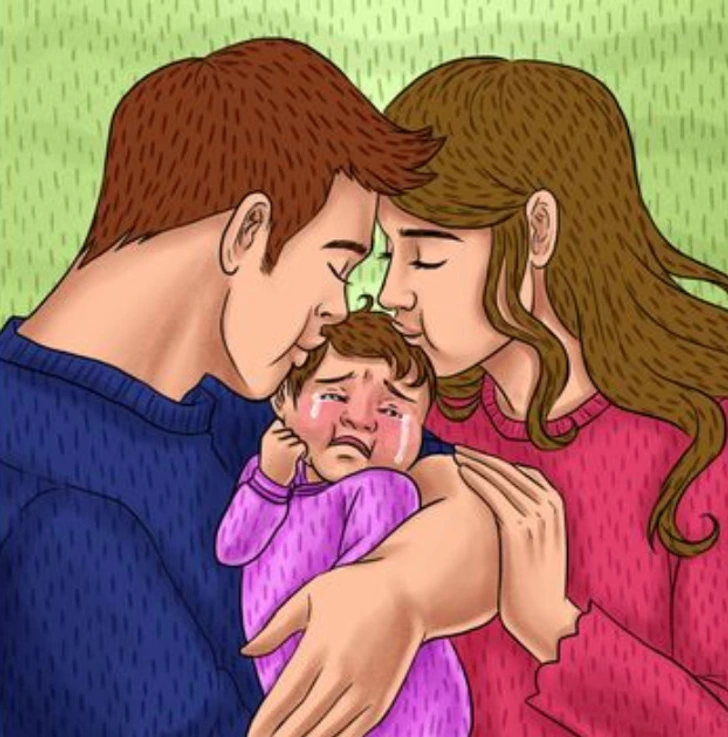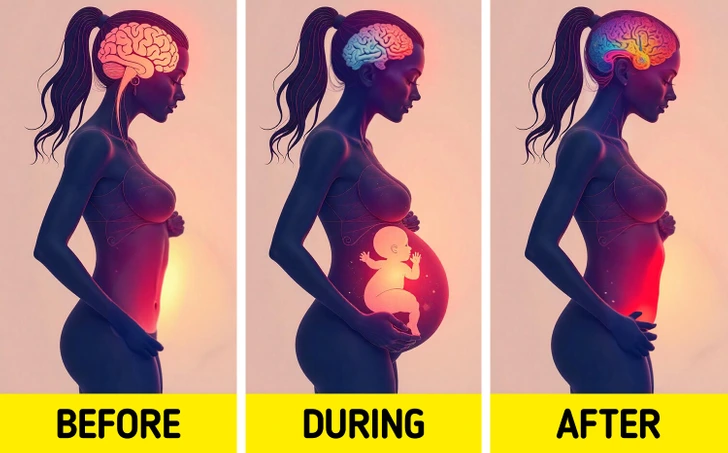We often talk about the physical changes during pregnancy—swollen ankles, baby bumps, glowing skin. But there’s one major transformation that gets far less attention: what happens inside the brain. Scientists now know that pregnancy rewires the brain in powerful ways, enhancing a mother’s instincts and emotional responsiveness. And here’s the kicker—those changes aren’t just real, they’re long-lasting.
Forget what you’ve heard about “mom brain” being a downside. According to neuroscience, these shifts are not about losing brain power—they’re about your brain leveling up for the biggest job of your life.

The Truth About “Baby Brain”
You’ve probably heard the jokes—pregnant women misplacing their keys or forgetting what they were saying mid-sentence. It’s often chalked up to “baby brain,” a term that sounds more like an insult than a compliment. But scientists say there’s more to the story.
What really happens during pregnancy is a sophisticated, hormone-driven overhaul of brain structure and function. Key regions—especially those tied to empathy, emotional regulation, and social connection—are fine-tuned to support a new mom’s ability to bond with her baby.
Dr. Emily Jacobs, a neuroscientist at the University of California, Santa Barbara, explains it like this: “It’s not brain shrinkage—it’s brain sculpting.” She compares it to an artist carving marble, revealing a form that’s stronger, more efficient, and designed for a new purpose.
Video: Can Giving Birth Permanently Change Your Brain?
When the Brain Starts to Change
Surprisingly, these changes kick in early—by the ninth week of pregnancy, your brain has already started adapting.
In fact, a study examining 400 brain regions found that nearly 80% showed reductions in gray matter during pregnancy. That might sound alarming at first, but it’s not about losing intelligence—it’s about specializing. The areas most affected are those involved in reading emotions, understanding others, and processing social information. All vital skills for parenting.
This streamlining—also known as “synaptic pruning”—makes the brain more efficient, helping moms tune into their baby’s cues and needs more intuitively.
The Motherhood Upgrade: Emotional Intelligence and Bonding

Dr. Elseline Hoekzema, who leads the Pregnancy and the Brain Lab in Amsterdam, explains that these brain changes directly enhance maternal behavior. “They’re related to how the mother responds to her baby,” she says.
What’s more, pregnancy creates what scientists call a “window of learning”—a time when the brain is especially responsive to bonding, caregiving, and social learning. According to Dr. Ronald Dahl of UC Berkeley, pregnancy hormones boost sensitivity to infant cues, which helps women adapt emotionally and mentally to motherhood.
It’s like your brain is rewiring itself to make room for new priorities—and it’s doing it with purpose.
Even the Brain’s Highways Get an Upgrade

Not only do gray matter regions change, but white matter—the brain’s internal wiring—also undergoes refinement. This allows better communication between different brain areas, essentially streamlining your mental processes. It’s like repaving the roads of your brain to allow for faster, smoother multitasking.
This could help explain why many new moms report feeling more focused on their baby’s needs and quicker to recognize emotional shifts or potential problems—even when they’re sleep-deprived.
The Effects Don’t Stop After Birth
Video: The surprising effects of pregnancy
Here’s where it gets even more fascinating: some of these brain changes don’t just disappear after delivery. Research shows that certain neural adaptations—particularly those related to empathy and social connection—can last for up to two years postpartum.
Dr. Jacobs refers to these as “permanent etchings” in the maternal brain. In some cases, scientists have been able to identify pregnancy in brain scans alone—just by looking at changes in structure and activity.
Pregnancy and the Brain’s Stress Response

Being a mom isn’t easy. But pregnancy actually prepares the brain to handle stress more efficiently. Changes in key areas like the amygdala and prefrontal cortex help regulate emotions and reduce sensitivity to certain stressors, which can allow moms to focus more on their baby than on their own discomfort.
Oxytocin, the “love hormone,” also plays a big role here. It reinforces maternal bonding, calming the mother and strengthening her connection to her child. Think of it as nature’s way of ensuring moms are equipped to protect, nurture, and comfort their babies.
Dads and Caregivers Experience Brain Changes Too

Although pregnancy hormones drive many of these changes, parenthood itself can reshape the brain—even for non-biological parents. Fathers, adoptive parents, and even grandparents who serve as primary caregivers can develop enhanced emotional processing and stronger neural responses to babies.
Dr. Jonny Kohl, a parenting researcher, notes that caregiving is a learned behavior supported by the brain. The more involved a person is in caregiving, the more their brain adapts—regardless of gender or biology.
The Multitasking Myth? Not So Mythical

Ever heard someone say moms have “eyes in the back of their heads” or can juggle five things at once? Turns out there’s science behind that. Studies show that pregnancy boosts connectivity in regions involved in multitasking, decision-making, and emotional control.
This means moms are not only more emotionally tuned-in but also more capable of handling the demands of caregiving while managing other responsibilities. These brain upgrades aren’t temporary—they can shape long-term instincts and parenting style.
Embrace the Transformation

So, what should expecting moms take from all this? That forgetfulness you occasionally feel? It’s not a bug—it’s part of a system upgrade. Your brain is reshaping itself to help you care more deeply, respond more quickly, and adapt more efficiently.
Instead of seeing “baby brain” as a sign of decline, think of it as your mind stepping into a whole new role—one that’s physically and emotionally demanding, but also deeply rewarding.
Science confirms what mothers have always known instinctively: the brain doesn’t just survive pregnancy. It thrives in it.


